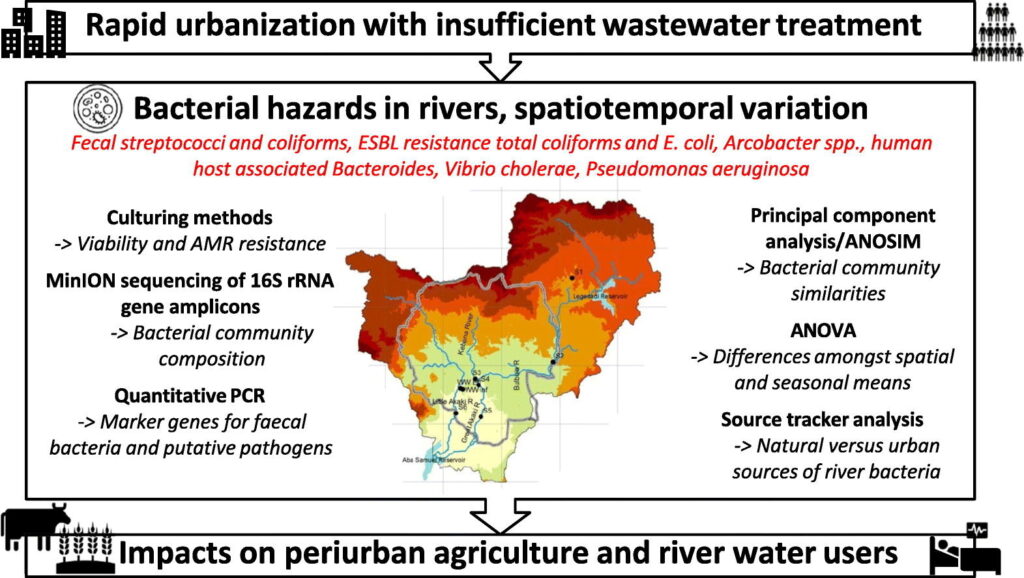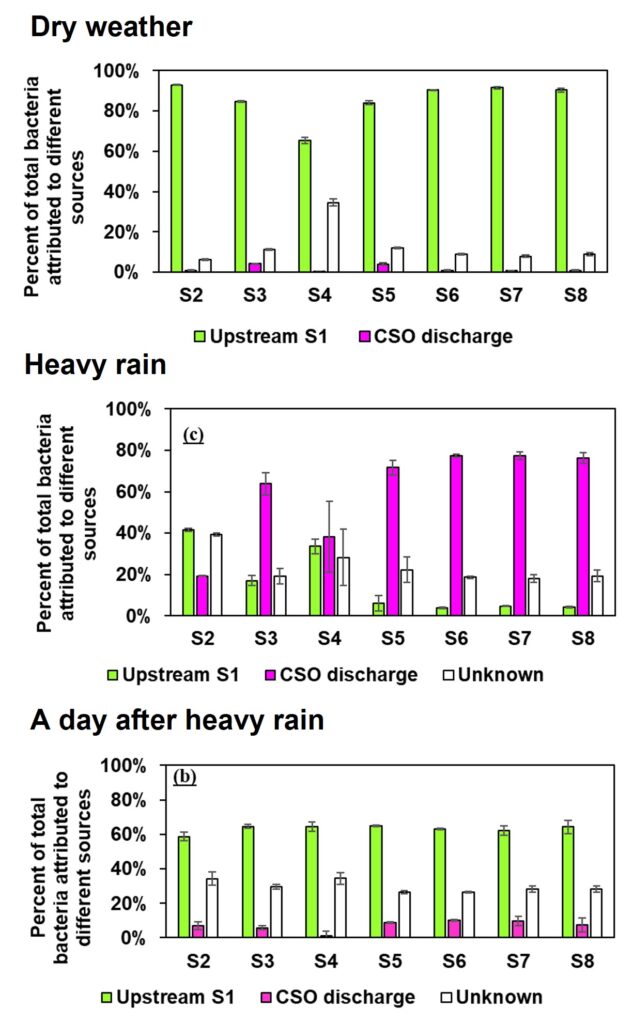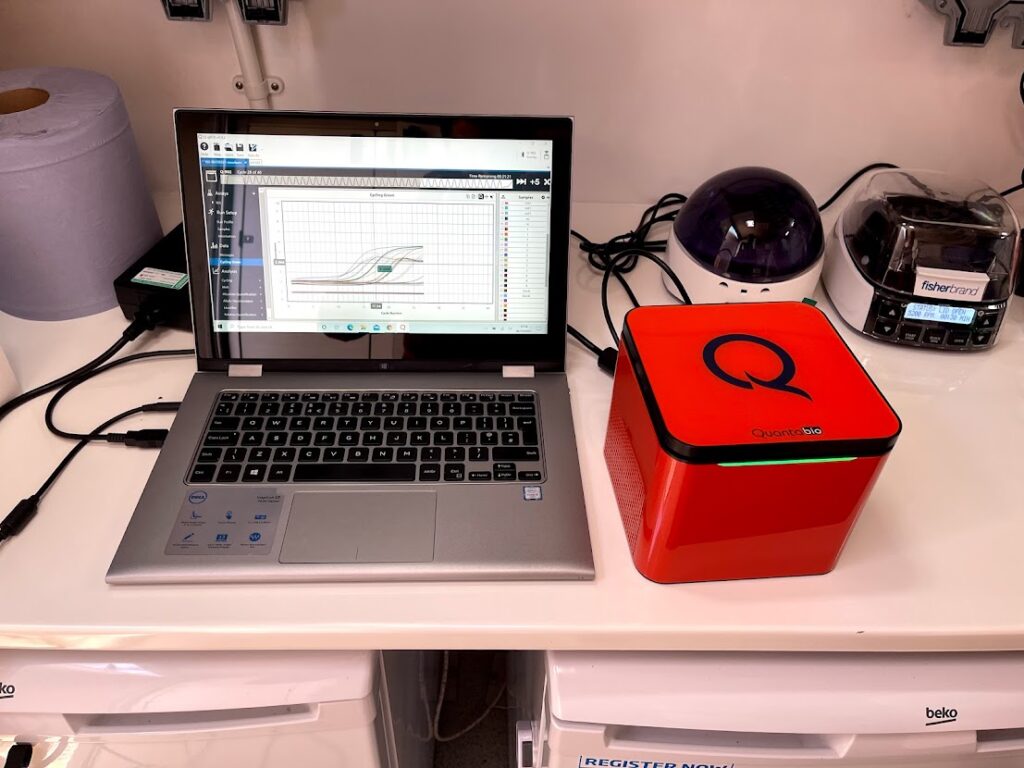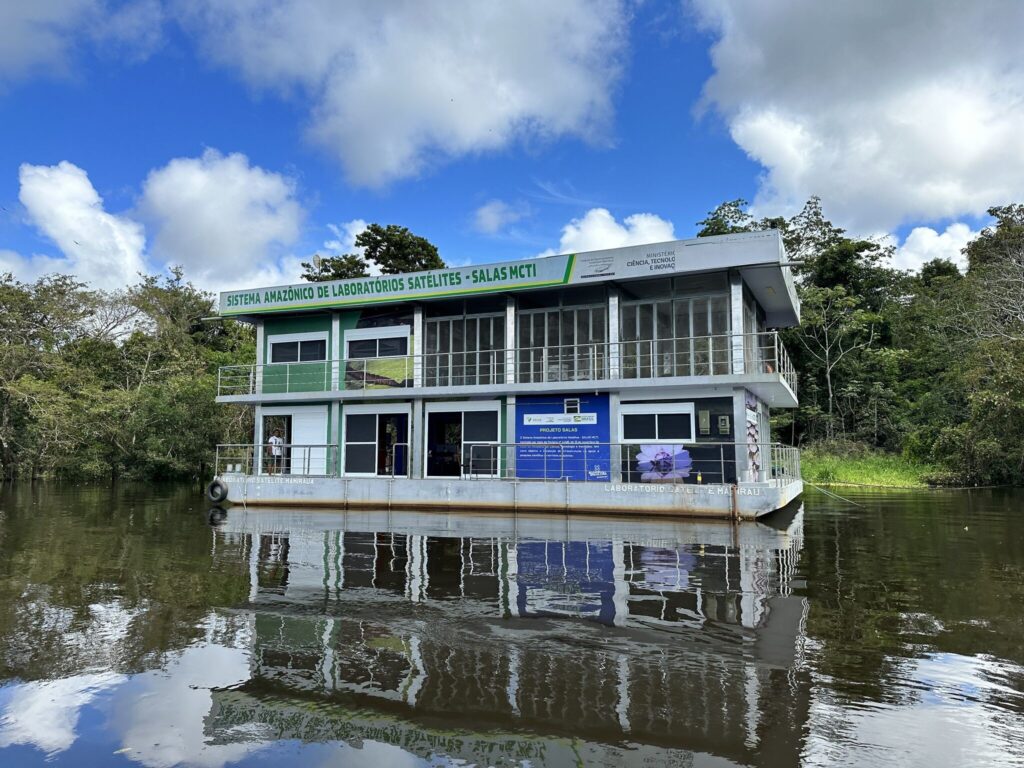Suitcase lab development and applications
Our suitcase lab for molecular microbiology enables comprehensive microbial water quality testing anywhere in the world. This project has been highlighted as a research outcome and impact case study by UKRI, and Newcastle University’s research blog. It was also featured in a recorded webinar on environmental DNA sequencing with Oxford Nanopore that features in Oxford Nanopore Technologies online resource centre.
Our development of the suitcase lab started in collaboration with colleagues in South Asia and Africa. Read our Water Research paper on how the suitcase lab was first used on-site at a small sewage treatment works in the UK, and then in the Akaki catchment in Ethiopia, to screen water samples for bacterial hazards. Read also our Environment International paper on how data generated with the suitcase lab informed quantitative microbial risk assessment to elucidate waterborne disease transmission pathways in the subsurface of an informal settlement in Dar es Salaam, Tanzania.
We later applied these methods to compare bacterial hazards in the Akaki catchment in the dry and wet season.

In Thailand we used the suitcase lab to investigate impacts of urban pollution on water quality in periurban aquacultures.
And in Nepal we used the suitcase laboratory for faecal pollution source tracking in the Bagmati River.
Our work with suitcase laboratory methods to track the sources of faecal bacteria in the river Ouseburn received a lot of media attention:
Chronicle, ITV News, Metro Radio, New Scientist

Method papers
Before we could use the suitcase lab, we had to validate the methods using environmental DNA (eDNA) samples from various household water sources in Nepal.
We have recently also validated a portable and versatile method for fecal pollution source tracking with onsite qPCR assays.

And we reviewed progress with the portable MinION nanopore sequencing platform towards ubiquitous genetics in water research.
Trainings
In addition to research, we have delivered hands-on training of over 200 colleagues from 19 countries across the globe working in academia and the water authorities and water industry, in the use of suitcase lab methods for comprehensive water quality testing.
Current work
We just finished our collaboration with Professor Cesar Mota and his group at the Universidade Federal de Minas Gerais in Brazil to deploy portable field kits for comprehensive water quality analysis in remote locations. An International Collaboration Award by the Royal Society helped us advance the state of the art in water quality monitoring in remote locations like the Amazon.

We have also obtained funding from the Reece Foundation to investigate the impact of sewage pollution on river water quality in Northeast England.
